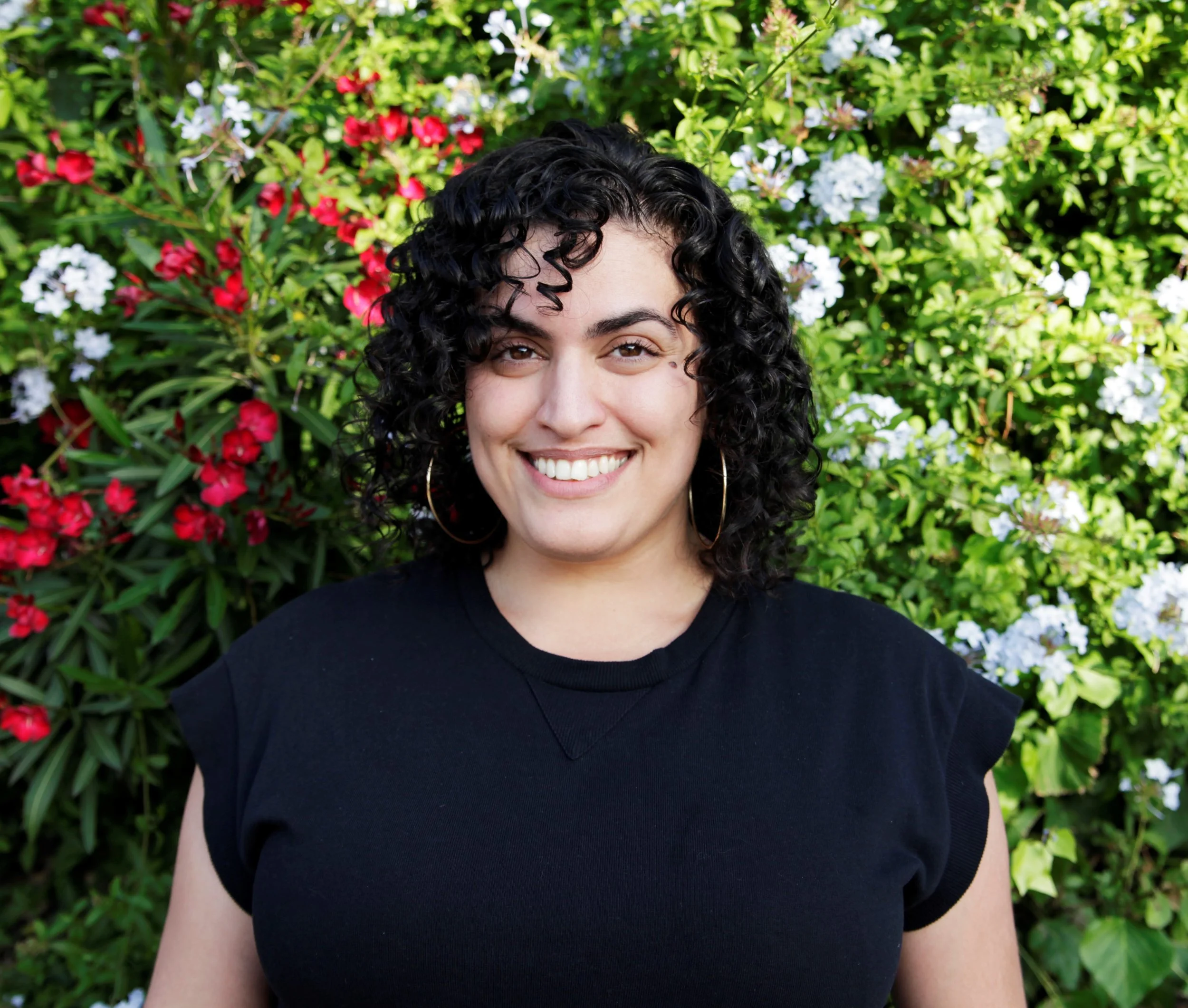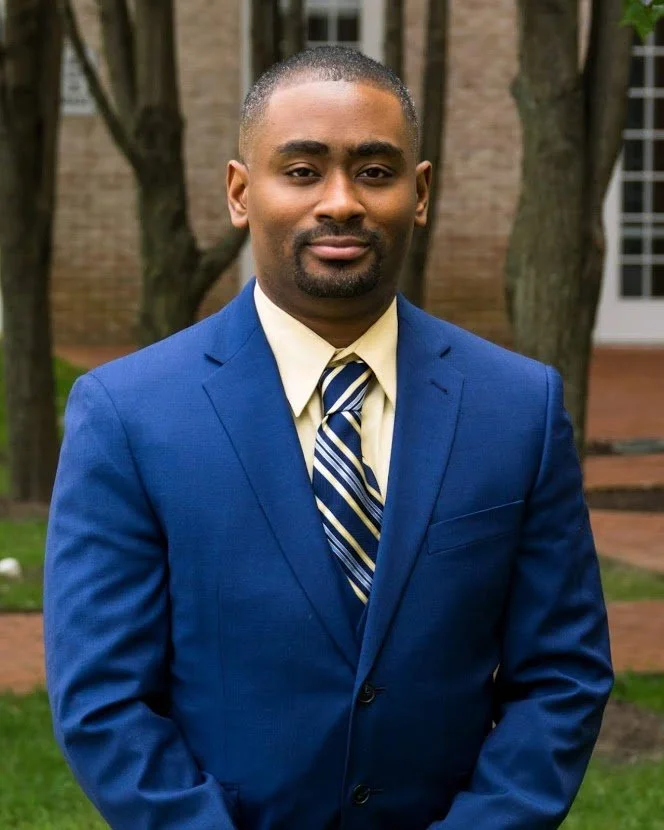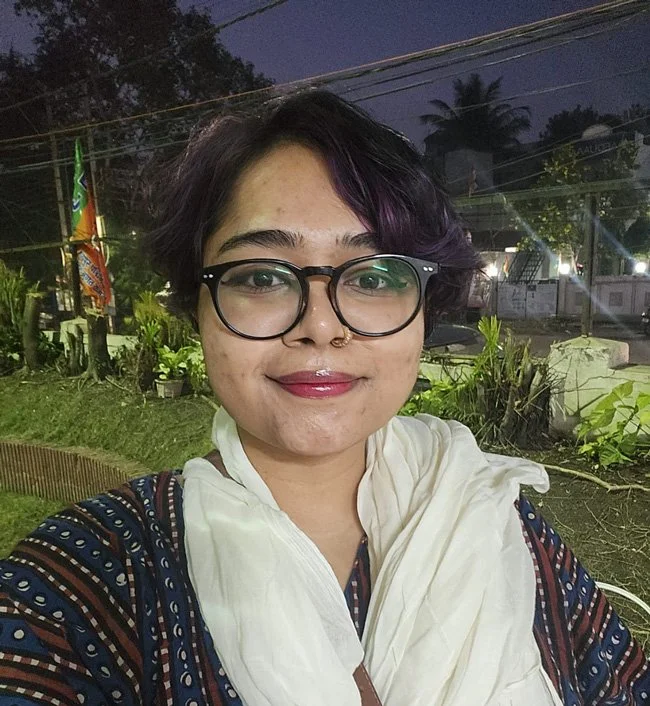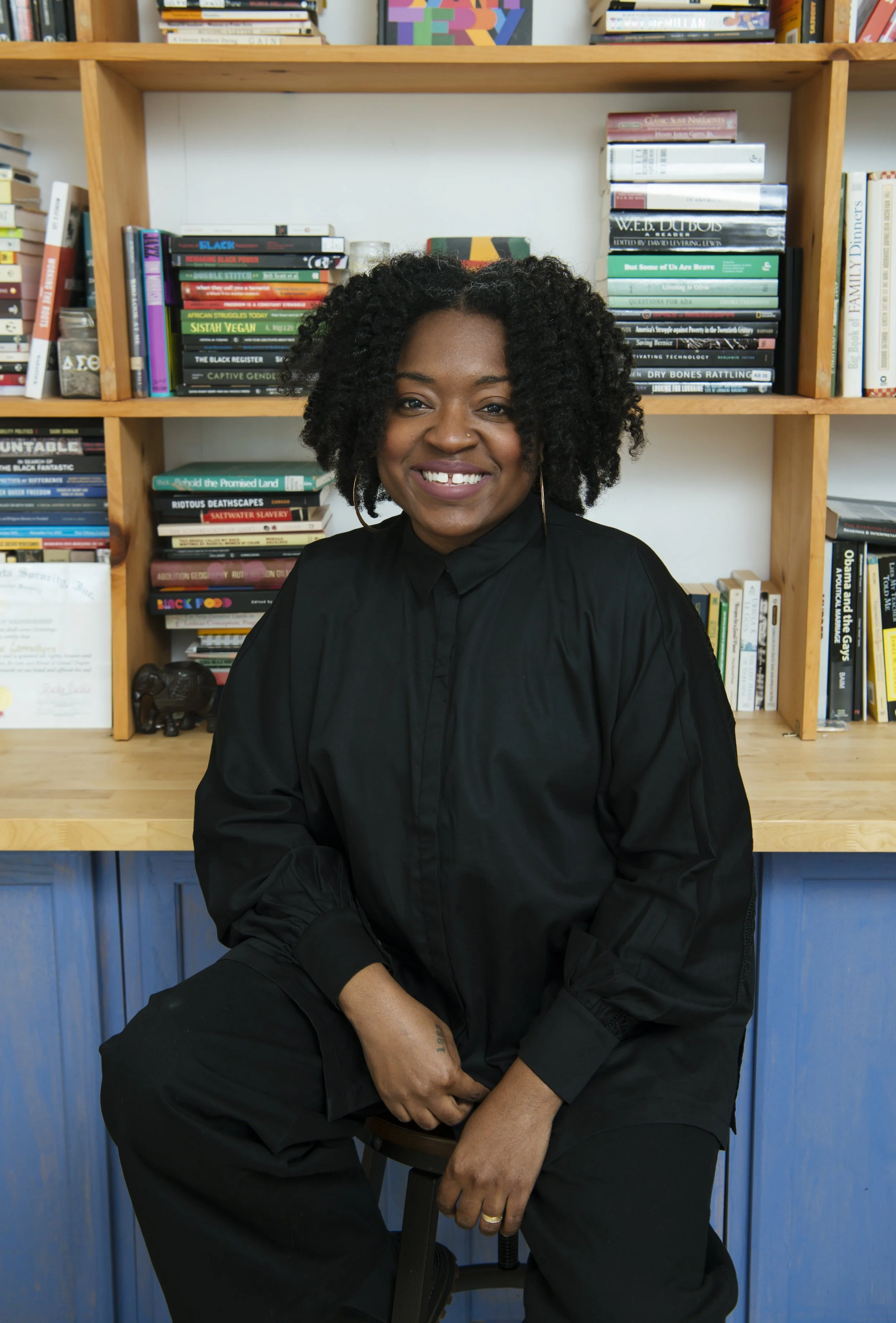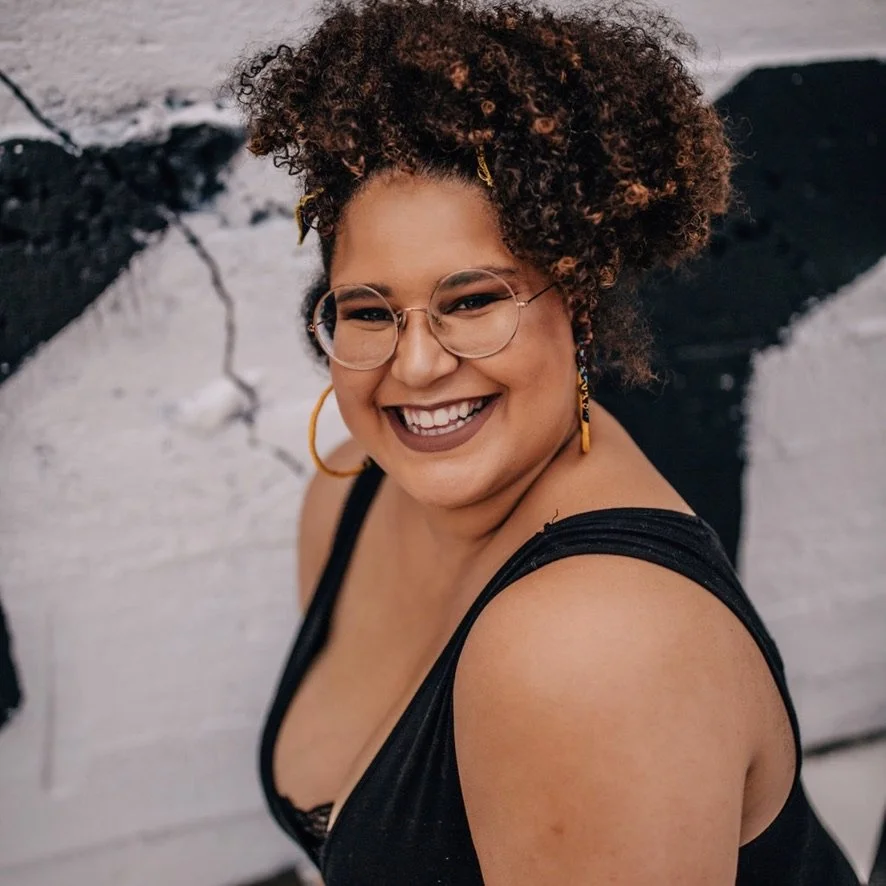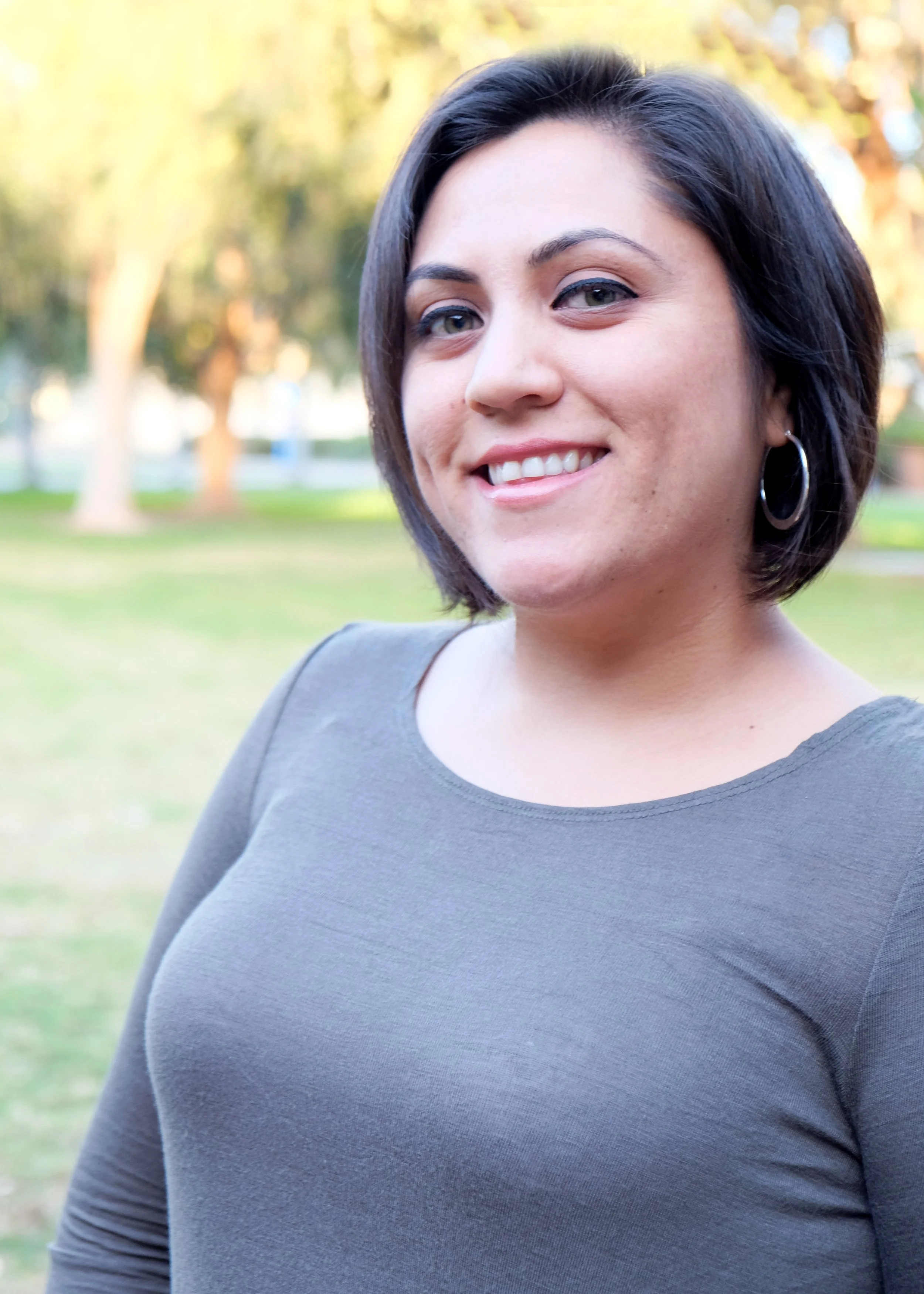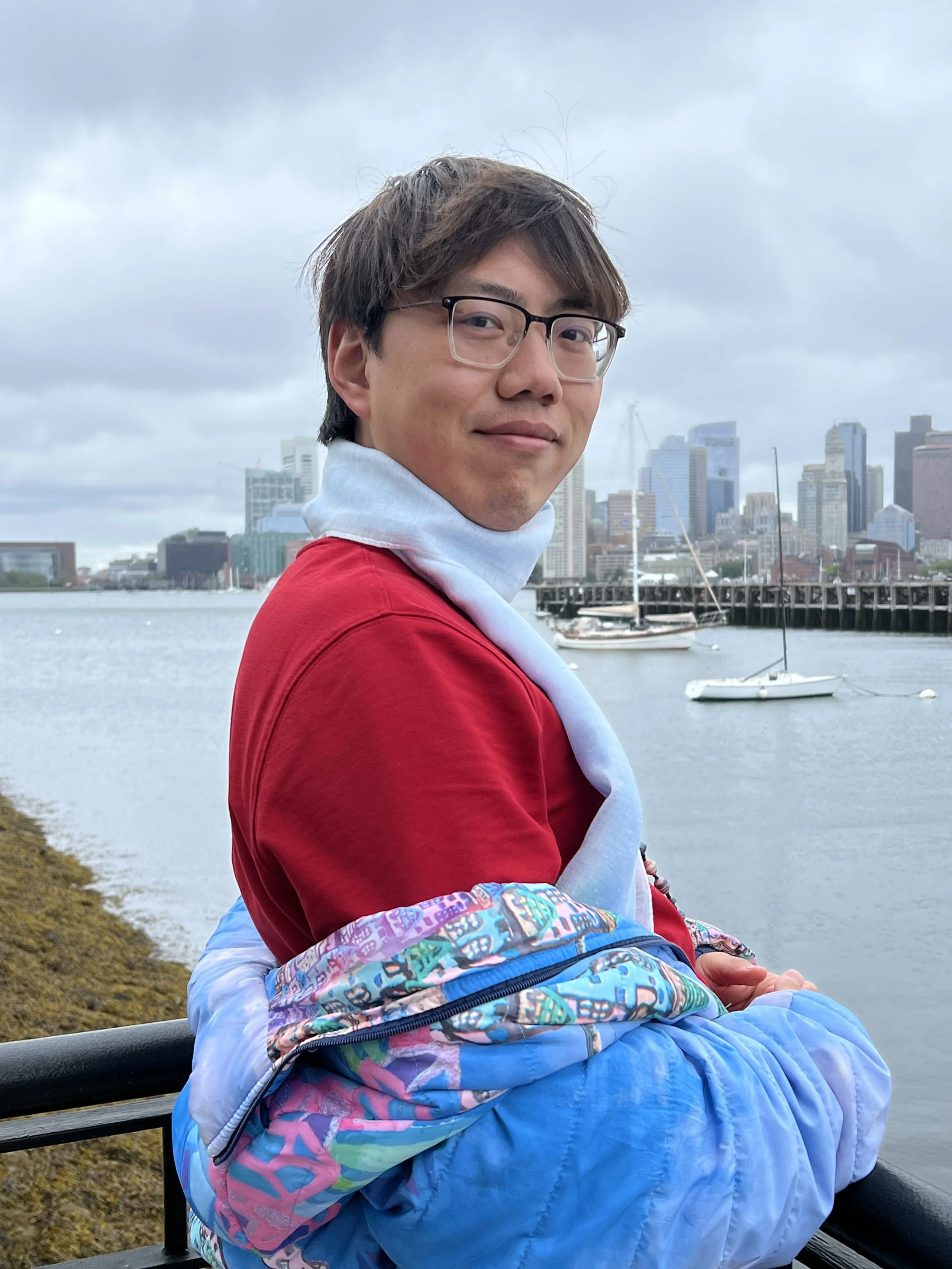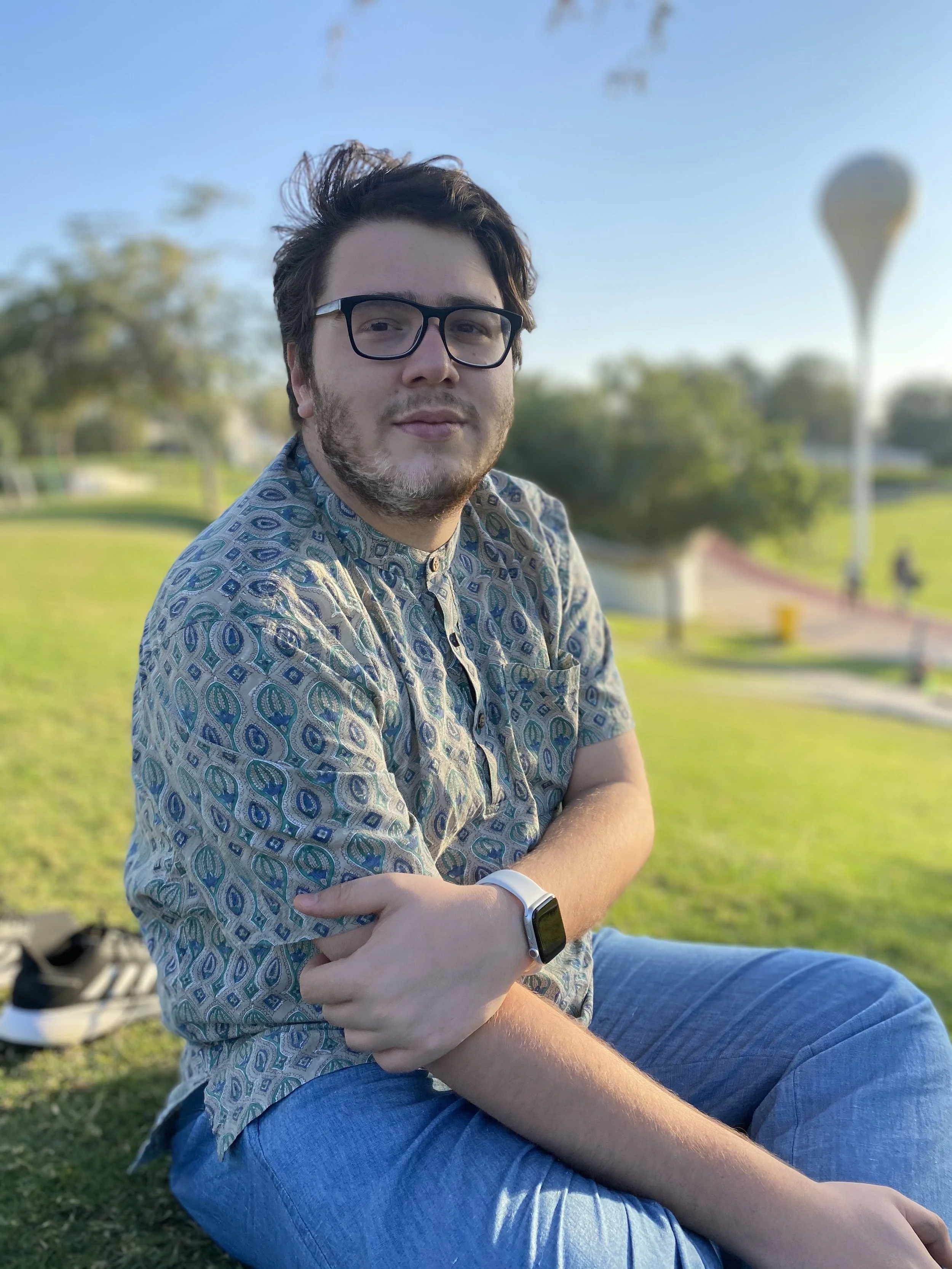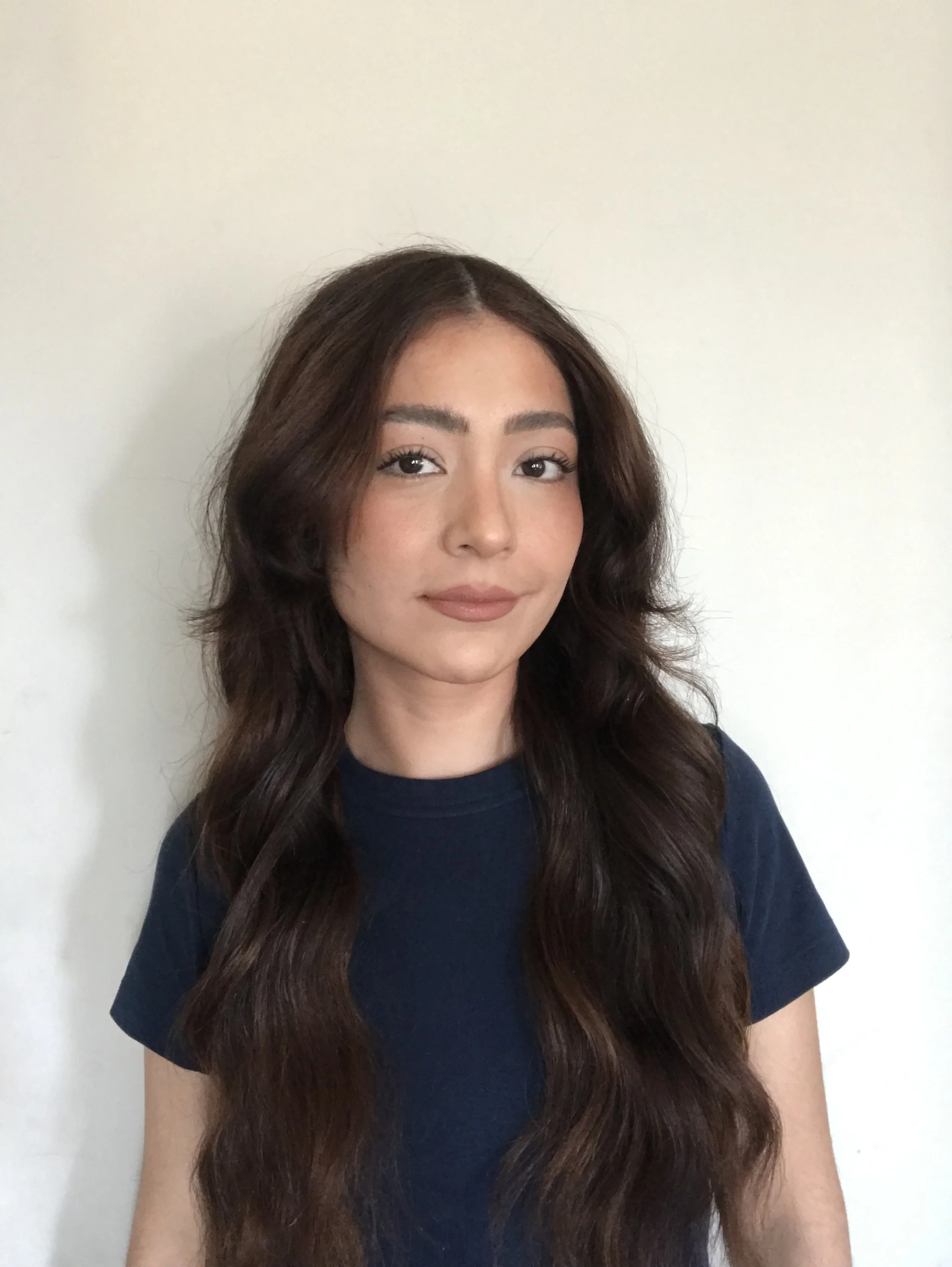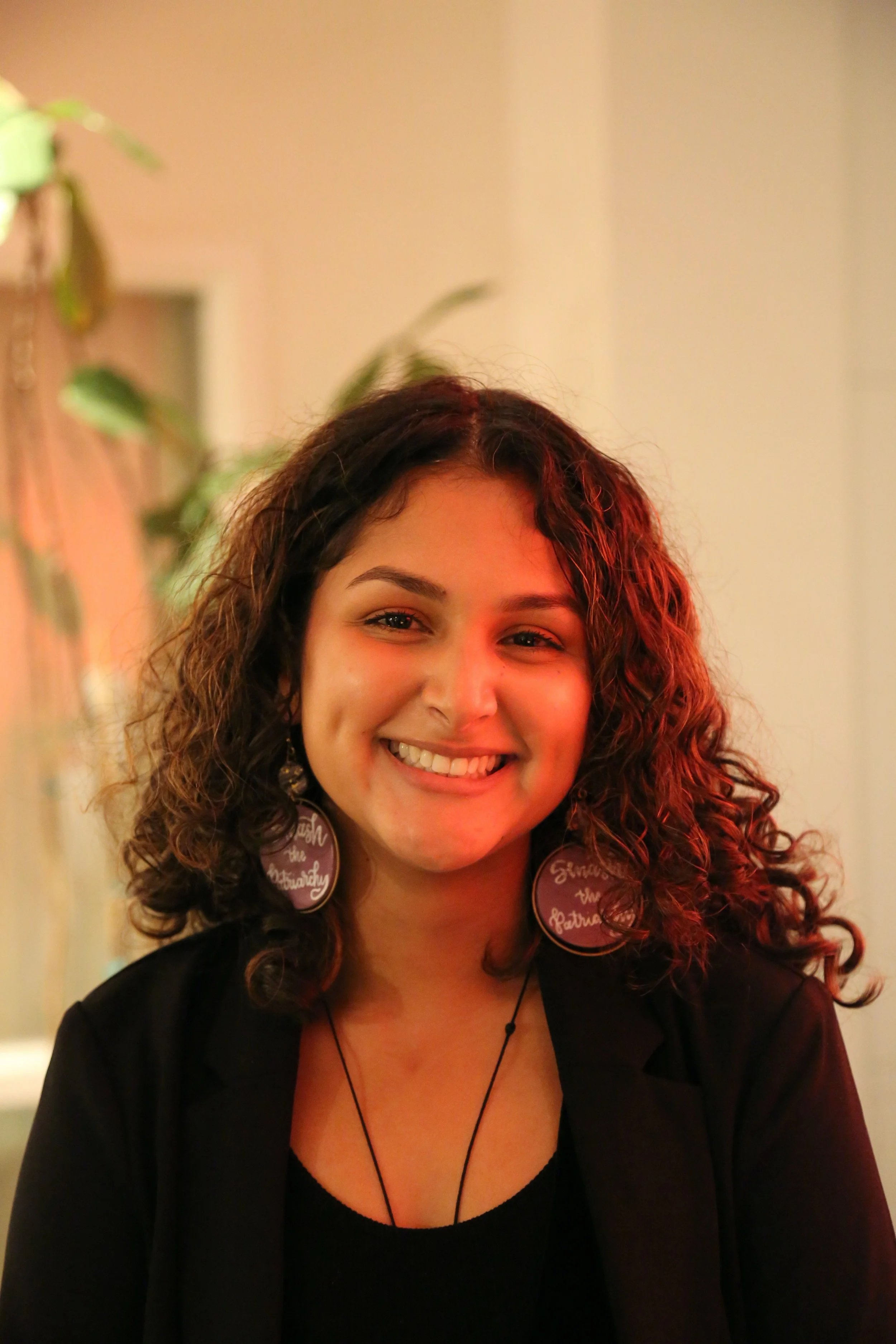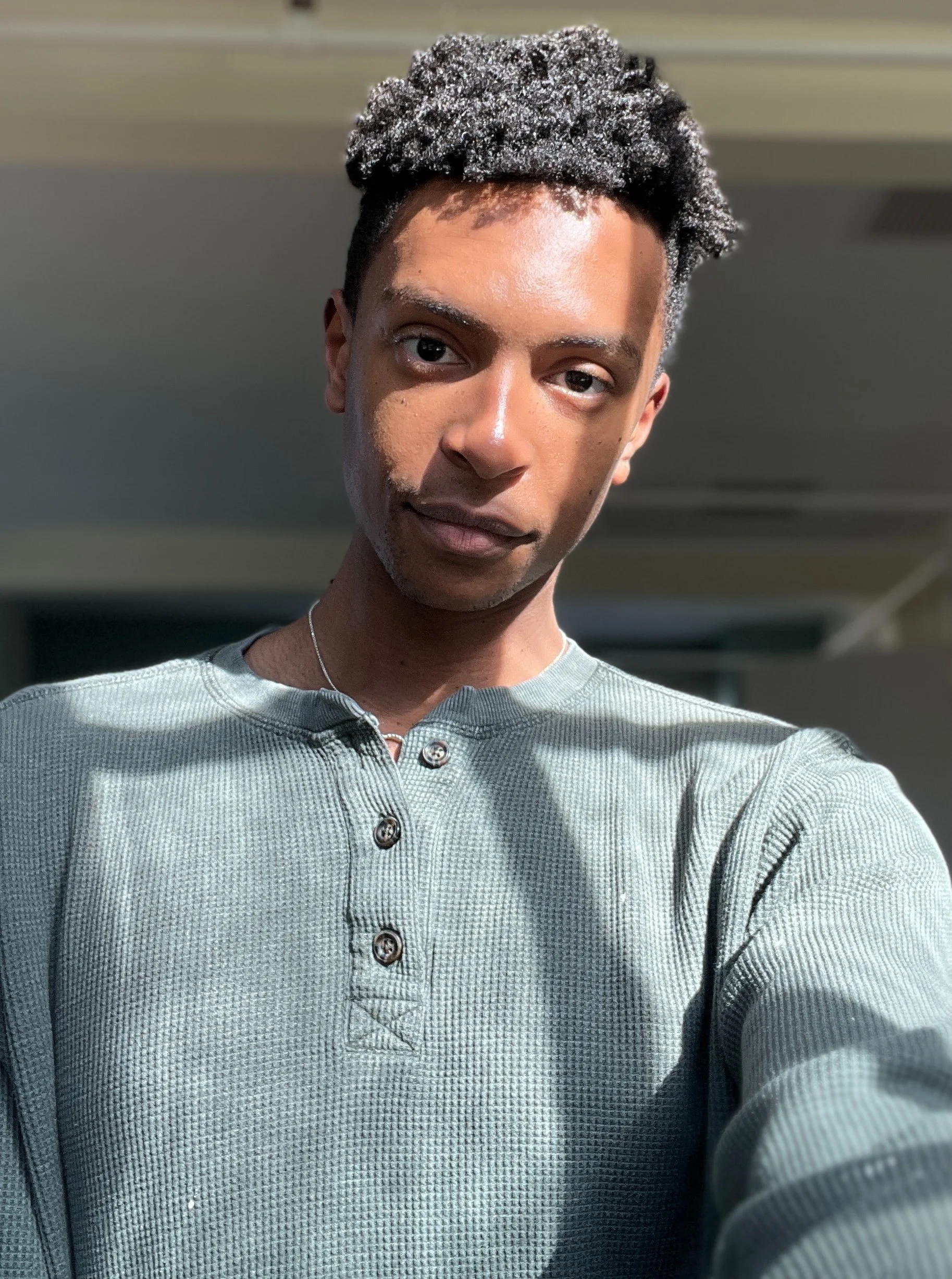2024-25 Academic Fellows
Each year, we welcome a new group of scholars to the BBQ+ academic fellowship program. The fellowship fosters ongoing relationships between the fellows and BBQ+ that continue after the academic year is done, and past cohorts remain an integral part of the BBQ+ community.
Postdoctoral Fellows
Tahereh Aghdasifar
-
Tahereh Aghdasifar is Assistant Professor of Women's Studies at California State University, Dominguez Hills. Aghdasifar specializes in queer of color critique, performance studies, and political economy to focus on questions of sociality and opacity. Her current book project develops a theory of refraction reading anti-representational aesthetics of dispossession and displacement to build a collective materialist politics. Her scholarship is published in GLQ, Women & Performance, and A Love Letter to "This Bridge Called my Back," among others, and has been supported by the Institute for Citizens and Scholars (formerly The Woodrow Wilson) Mellon Fellowship, the Center for Black, Brown, and Queer Studies, and the American Association of University Women.
Elyse Ambrose
they/them
-
El/yse Ambrose, PhD (they/them) is a blackqueer ethicist, artist, and educator whose research, art, and teaching engages with blackness, transness, queerness, and spirituality/the religious/the sacred.
Ambrose’s book, A Blackqueer Sexual Ethics: Embodiment, Possibility, and Living Archive, looks to a living historic, discursive, and ethnographic archive of blackqueerness as a generative source for transreligious ethical reflection and for countering dominant antiblack and antibody logics and practices at the intersections of sexuality, race, gender, and religion. Ambrose’s ongoing photo-sonic work, “Spirit in the Dark Body: Black Queer Expressions of the Im/material,” explores black queer and trans spiritualities and pluri-poiesis. It premiered during the annual meeting of the American Academy of Religion at the L Street Fine Arts Gallery (San Diego, CA) and has shown with the House of Mark West (Bronx, NY)— one of the few black queer-owned galleries in the country. They are the founder of the Black Trans Ethical World(un)making Lab, co-sponsored by the Department of Black Study at the University of California, Riverside and the University of California Humanities Research Institute.
Ambrose currently serves as Assistant Professor of the Study of Religion and of Black Study at the University of California, Riverside. Their commentary is featured in the Huffington Post, Vice, BMoreArt, Religious Studies Review, and CBC Radio One’s Tapestry podcast, among other media outlets. Their research has been supported by the Mellon Foundation and UC Riverside’s Center for Ideas and Society, Columbia University's Center on African American Religion, Sexual Politics, and Social Justice and the Henry Luce Foundation, and Yale University LGBT Studies Fellowship, and the Center for Black, Brown, and Queer Studies (BBQ+).
El/yse Ambrose resides in Los Angeles and their heritage is of New Orleans. They are a fulfilled partner, plant sibling, and parakeet parent.
Kiana T. Murphy
-
Dr. Kiana T. Murphy is an Assistant Professor of American Studies at Brown University.
Her creative and scholarly work bridges the intellectual traditions of Black speculative aesthetics, Black girlhood studies, Black feminism and queer theory, and archive studies. In 2022-2023, she was a Huntington Library Mellon Fellow researching in the Octavia E. Butler papers and is currently a 2024-2025 fellow at The Center for Black, Brown, and Queer Studies (BBQ+). She is currently working on two projects: first, an academic manuscript that bridges Black girlhood studies and Black women and non-binary creators’ techniques of worldbuilding across genres and second, a collection of speculative fiction stories that blends science fiction, fantasy, surrealism, and archival material to examine the haunting effects of gentrification on the lives of Black children in Washington, DC. Her work is published or forthcoming in The Black Scholar, American Quarterly, University Press of Mississippi, Science Fiction and Fantasy Journal, a gathering together: literary journal, Callaloo, and elsewhere, and has been supported by the Huntington Library, the National Endowment for the Humanities (NEH) Institutes, and The Institute for Citizens and Scholars.
Between 2018-2021, Murphy proudly served as the co-organizer of the Black Cultural
Studies Collective, a Black studies working and reading group based in Philadelphia.
She also worked as an assistant curator for the Joanna Banks Collection and Exhibit in February 2020 at the University of Pennsylvania’s Kislak Center for Special Collections, Rare Books, and Manuscripts, which included Black women’s fiction and poetry, periodicals, cookbooks, and children’s books published in the late 20th century.
She is an alum of the Posse Foundation, Bill and Melinda Gates Millennium Foundation, and the Ronald E. McNair Scholars programs. She is also a proud native of Washington, DC.
Prerna Subramanian
she/they
-
Dr. Kevin C. Winstead is an Assistant Professor of Critical Media and AI Studies within the African American Studies and Sociology Departments at the University of Florida. His research focuses on critical information studies, social movements, and digital media, specifically on transglobal disinformation. His work can be found in Ethnic and Racial Studies, Sociology Compass, and Critical Intersections in Contemporary Curriculum & Pedagogy, Information Age Publishing. In addition, Kevin has co-authored Doing Black Digital Humanities: Radical Intentionality and the Praxis of Care (2023) and Technoskepticism: Between Possibility and Refusal (2025).
Dr. Winstead's current book project, Sankofa Cyberculture: Black Digital Activism and Disinformation, explores the intersection of culture, social movements, and digital misinformation, particularly within the Movement for Black Lives. His work examines how foreign actors attempt to influence the American political process and the impact of digital misinformation on social movements.
Dr. Winstead has been instrumental in founding several Black Digital Studies centers, including the African American History, Culture, and Digital Humanities (AADHum) Initiative, funded by the Andrew W. Mellon Foundation. This initiative has significantly broadened the reach of digital humanities in African-American history and cultural studies.
Before joining the University of Florida, Dr. Winstead was a Council for Library and Information Science (CLIR) Postdoctoral Fellow of African American Data Curation at Penn State University. He was also the inaugural Project on Rhetorics of Equity, Access, Computation, and Humanities (PREACH) Research Lab Fellow at Georgia Institute of Technology.
Kevin C. Winstead
-
Prerna Subramanian (they/she) is a neurodivergent scholar who teaches English, Writing and literary approaches to mobility and Media in Jindal Global Law School. Prerna finishes their PhD in Queen's University, Kingston, Ontario. They approached the space of BBQ+ as a space of undoing the harm of the traumatizingly isolating PhD process, and are workshopping different articles based on their research interests: literary-urban-cultural studies in the arena of queer and trans representations, SVOD representations of caste and gendered moblities in India and geographies of kpop fandom cultures.
Advanced Doctoral/Dissertation- Level Fellows
Charlene A. Carruthers
she/her
-
Charlene A. Carruthers is a writer, filmmaker, community organizer, and Black Studies PhD Candidate at Northwestern University. Her work spans more than 20 years of community organizing across racial, gender and economic justice movements. A practitioner of telling more complete stories, her work honors ancestors across the diaspora and interrogates ongoing work towards collective liberation. She is the founding National Director of BYP100, a national organization of young Black organizers working through a Black queer feminist lens. Charlene wrote and directed The Funnel, a short film, which received the Queer Black Voices Award at the 35th Annual aGLIFF Prism Film Festival. She is an inaugural Marguerite Casey Presidential Freedom Scholar, 2024 Northwestern University Presidential Fellow, and 2024 Center for Racial Justice Fellow at the University of Michigan. In addition to being a highly sought-after speaker, educator, and facilitator, Charlene is author of the bestselling book, Unapologetic: A Black, Queer and Feminist Mandate for Radical Movements (Beacon Press). She is an enthusiastic global traveler and believes that food is the best way to learn about people and culture.
Allison Lewis
she/her
-
Allison Lewis (she/her) is a Doctoral candidate in the American Studies Department at the University of Kansas. She holds a BM in vocal performance with a focus in operatic studies as a mezzo soprano, an MA in African and African American Studies, and a certificate in Women, Gender, and Sexuality Studies from the same university. Allison is a Black feminist, transdisciplinary, queer, artist-scholar who is dedicated to producing research and music that is in service of Black liberation. Her dissertation is an ethnographic study on the role of Black children and children’s characters in operas written by Black composers at the top American opera houses in the 2023 season. Allison has presented her research at ASALH, NWSA, AMS, and ASA in addition to her work as a musical director, vocalist, and music supervisor for a variety of university and professional plays in Kansas, including writing and directing a visual album utilizing the music of Margaret Bonds, titled Reflections Through the River, for Heartland Opera Theater. Allison has three upcoming publications in 2025 including, Shirley Graham Du Bois, A Dangerous Woman: The Radical Potential of Black Operatic Performance, co-authored article with Brent Ferguson in the “Colloquy: On Music Theory and Making Music More Welcoming for Everyone” for the Journal of Music Research, edited by Daniele Sofer with response from Phillip Ewell, The Cost of Freedom is Death: Malcolm X at the Métropole in “Malcolm X and the Arts: A Centennial Reflection,” an editorial collective published by Third World Press and edited by Keith Gilyard (May 2025), and We Sing Because We Must: Black Opera Against American Fascism, an essay in the inaugural edition of the “Journal of Black Opera and Musical Theatre” edited by Naomi André. Lastly, Allison is an affiliate scholar for the Black Opera Research Network where she is a co-researcher and creator of the Black Opera Database.
Grecia Perez
she/her
-
Grecia Perez is a PhD Candidate in the Department of Anthropology at the University of California, Riverside. Her work examines the impact of development and the intersections between citizenship, conservation, climate change, environmental justice, and social movements in the Pacific Coast of Southern Mexico. Using “geographies of tension” as a theoretical framework, Grecia’s work explores how narratives around conservation, climate change, or social movements are underscoring how development strategies discard, undervalue, and invalidate Black and Indigenous Mexican communities. Through community-engaged ethnography, Grecia’s work foregrounds how communities respond to, negotiate, and/or manage development strategies to counter discursive inventions embedded in development. Grecia’s work in Southern Mexico began in 2014 when comparisons between her mestizo hometown in Northern rural Mexico inspired her to research the role conceptual boundaries of racial and ethnic identity play in becoming included or excluded in the Mexican human rights discourse. In the US, Grecia collaborates with community-based organizations focusing on environmental justice, economic justice, immigration, and labor.
Wenxuan Xue
they/any
-
Wenxuan Xue is a Boston-based interdisciplinary artist, performance curator, and PhD candidate in Theatre and Performance Studies at Tufts University. Their dissertation project Ancestral Fabulation: Fierce Femme Spiritual Placemaking and Performance across Asian America, attends to how Asian North American artists return to, mythologize, and imagine their femme ancestral intimacies through contemporary performance, ritual, and storytelling practices. Their solo performance becoming ancestral mud searches for their own femme relatives, ancestors, and goddesses, those who have dwelled intimately with soil and water at a northern shaanxi village across generations. They are currently developing a series of public art ceremonies in Boston Chinatown to make space for collective remembrance and communal grief through stories, songs, rituals, and prayers, supported by New England Foundation for the Arts. Their website is http://www.wenxuanxue.com.
Srishti Sood
she/her
-
I am a PhD candidate in Sociocultural Anthropology at the George Washington University, Washington DC. Broadly, my research interests lie at the intersection of environmental anthropology, political ecology, and feminist STS. I am interested in questions pertaining to the production and maintenance of environmental knowledge, injustice, and governance. While my work has a regional focus on South Asia, I adopt a transnational lens to analyze its politics, acknowledging the overlapping trajectories and legacies of colonialism, imperialism, and late industrialism that shape its contemporary landscape. I am currently writing my dissertation "Sacred Waters, Contested Futures: The Politics and Poetics of River Restoration in Varanasi, India", where I examine the material politics and practices of the river Ganga’s restoration and their consequences for shaping riverine care and community.
Master’s/Early Doctoral Fellows
Syed Taha Kaleem
he/him
-
Kaleem is a PhD Candidate in the Department of Anthropology, at Brandeis University where his research examines the social life of oil in Doha and its entanglements with gender, race, sexuality, ethnicity, and citizenship. His work investigates how Qatar’s petro-economy not only shapes material infrastructures and economic hierarchies but also produces, regulates, and reconfigures gendered subjectivities. By tracing the ways oil-funded development projects, labor regimes, and social institutions mediate experiences of sexuality, he explores how state power, economic privilege, and cultural norms intersect in everyday life.
Kaleem has spent nearly two years conducting ethnographic fieldwork in Qatar, engaging with a diverse range of interlocutors, including Qatari citizens, expatriates, and migrant workers. His research is informed by extensive participant observation, interviews, and archival analysis, allowing him to capture the nuanced ways in which oil economies structure not only material conditions but also intimate relationships, aspirations, and constraints on gender expression. His work contributes to broader anthropological debates on the intersections of energy economies, state power, and social life, particularly in the Gulf region.
Before pursuing his PhD, Kaleem earned a BSc in Foreign Service from Georgetown University, where he developed a strong foundation in international affairs, political economy, and Middle Eastern studies. Through his work, he seeks to deepen understanding of how global energy economies shape the intimate and political dimensions of life in resource-rich states, offering critical insights into the lived effects of oil wealth beyond conventional economic analyses.
Elizabeth Lopez
she/they
-
Elizabeth (Liz) Lopez (she/they) was raised in South Central, Los Angeles. She is a dreamer, educator, and second-year doctoral student in the Claremont Graduate University (CGU) PhD in Education (Higher Education Policy) program. Her research ranges from critical disability, gender based violence prevention, civil rights for LGBTQ+ students, to examining how carceral logic is reproduced within the college and university context. She is a Bowen Institute for Policy Studies in Higher Education Fellow. Additionally, Liz is the CGU Dean of Students Office Title IX Specialist where she commits herself to educate the campus on ways to engage in healthy community-building practices. In her spare time, she enjoys watching horror and thriller movies, taking naps, and dreaming up a world where Queer and Trans people of color can thrive.
Alejandra Valencia Medina
she/her/ella
-
Alejandra Valencia Medina (Ale) (she/her) is a fourth-year PhD student at the University of California, Santa Barbara (UCSB) in the Department of Chicana and Chicano Studies. Alejandra was born in Mexico and raised on the southwest side of Chicago, IL. She attended Pomona College in Claremont, CA as a Posse Scholar. Her research is interested in exploring Latina sexuality using plática methodology, music video analysis, and audience reception. Ale is drawn to exploring questions of pleasure, desire, and agency. Ale is part of the BBQ+ MA/Early PhD cohort and a recipient of the 2024 Mellon Foundation Crossing Latinidades Fellowship. Beyond her research, Alejandra has also served as a graduate assistant at the Undocumented Student Services at UCSB which she loved because it was an opportunity to plan, organize, and host community events and connect with graduate and undergraduate students. During her free time, Ale loves learning about astrology, listening to fiction audiobooks, and baking.
Bryant Taylor
he/him
-
Bryant Taylor (he/him) is currently a PhD student in the inaugural Indigenous, Race, and Ethnic Studies (IRES) program at the University of Oregon. His research focuses on Black queer homemaking practices, exploring how Black queer folks create and sustain homes that affirm their identities and relationships. When not working, he’s playing tennis or video games with his close friends or traveling around Europe.
Grace Eunchong Park
they/them/theirs
Undergraduate Fellows
Aashi Mendpara
she/they
Abhi Nimmagadda
he/ze
Imaan Mirza
she/her
Andy Lisheng
any

